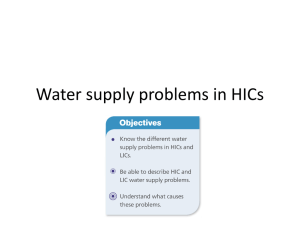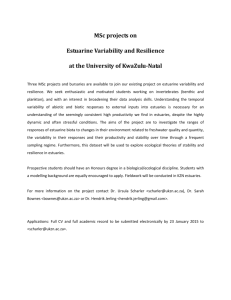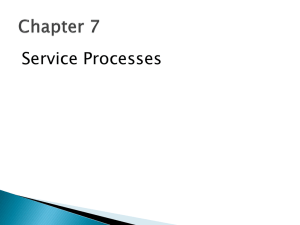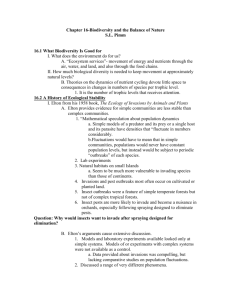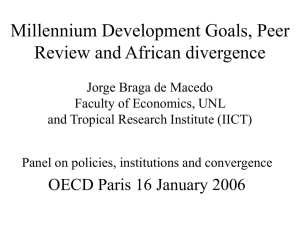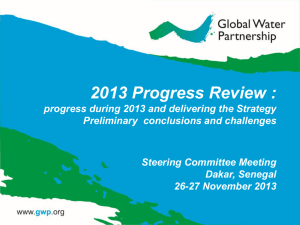Target 9 Description and Summary - Solutions for Water platform
advertisement
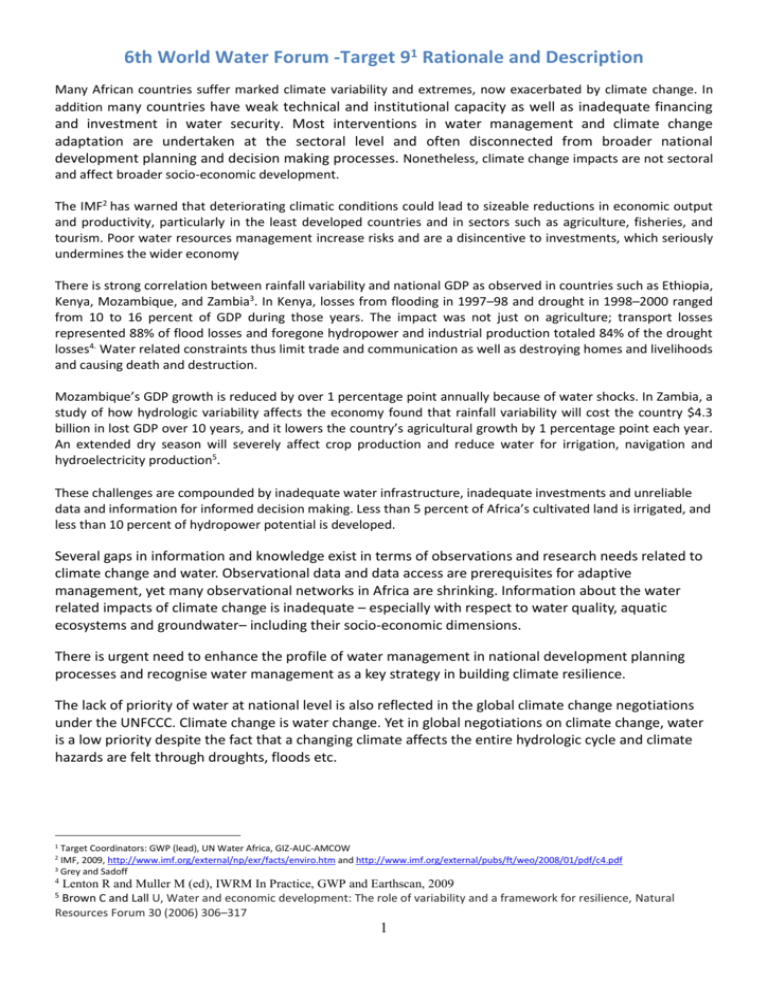
6th World Water Forum -Target 91 Rationale and Description Many African countries suffer marked climate variability and extremes, now exacerbated by climate change. In addition many countries have weak technical and institutional capacity as well as inadequate financing and investment in water security. Most interventions in water management and climate change adaptation are undertaken at the sectoral level and often disconnected from broader national development planning and decision making processes. Nonetheless, climate change impacts are not sectoral and affect broader socio-economic development. The IMF2 has warned that deteriorating climatic conditions could lead to sizeable reductions in economic output and productivity, particularly in the least developed countries and in sectors such as agriculture, fisheries, and tourism. Poor water resources management increase risks and are a disincentive to investments, which seriously undermines the wider economy There is strong correlation between rainfall variability and national GDP as observed in countries such as Ethiopia, Kenya, Mozambique, and Zambia3. In Kenya, losses from flooding in 1997–98 and drought in 1998–2000 ranged from 10 to 16 percent of GDP during those years. The impact was not just on agriculture; transport losses represented 88% of flood losses and foregone hydropower and industrial production totaled 84% of the drought losses4. Water related constraints thus limit trade and communication as well as destroying homes and livelihoods and causing death and destruction. Mozambique’s GDP growth is reduced by over 1 percentage point annually because of water shocks. In Zambia, a study of how hydrologic variability affects the economy found that rainfall variability will cost the country $4.3 billion in lost GDP over 10 years, and it lowers the country’s agricultural growth by 1 percentage point each year. An extended dry season will severely affect crop production and reduce water for irrigation, navigation and hydroelectricity production5. These challenges are compounded by inadequate water infrastructure, inadequate investments and unreliable data and information for informed decision making. Less than 5 percent of Africa’s cultivated land is irrigated, and less than 10 percent of hydropower potential is developed. Several gaps in information and knowledge exist in terms of observations and research needs related to climate change and water. Observational data and data access are prerequisites for adaptive management, yet many observational networks in Africa are shrinking. Information about the water related impacts of climate change is inadequate – especially with respect to water quality, aquatic ecosystems and groundwater– including their socio-economic dimensions. There is urgent need to enhance the profile of water management in national development planning processes and recognise water management as a key strategy in building climate resilience. The lack of priority of water at national level is also reflected in the global climate change negotiations under the UNFCCC. Climate change is water change. Yet in global negotiations on climate change, water is a low priority despite the fact that a changing climate affects the entire hydrologic cycle and climate hazards are felt through droughts, floods etc. 1 Target Coordinators: GWP (lead), UN Water Africa, GIZ-AUC-AMCOW IMF, 2009, http://www.imf.org/external/np/exr/facts/enviro.htm and http://www.imf.org/external/pubs/ft/weo/2008/01/pdf/c4.pdf 3 Grey and Sadoff 2 4 Lenton R and Muller M (ed), IWRM In Practice, GWP and Earthscan, 2009 Brown C and Lall U, Water and economic development: The role of variability and a framework for resilience, Natural Resources Forum 30 (2006) 306–317 5 1 Decisions on building resilience to climate change both at the national and global level need to be informed by latest analyses of changes in state of water resources. Water is also a key factor in mitigation strategies and low carbon development strategies. This Target (9) aims to support African countries in integrating water security and climate resilience into country national development plans and enhance African Water sector representation in the negotiation on climate change starting by COP 18 to ensure access to incremental funding by 2015. The Target will lead to development of ‘no-regrets’ investment and financing strategies for water security and climate resilient development. This will be achieved through various initiatives by the African Ministerial Council on Water (AMCOW) as well as others supported by several AMCOW Partners, National governments such as: The Water, Climate Development programme by GWP The Climate Information and Development (ClimDev) programme implemented by African Development Bank (AfDB) and United Nations Economic Commission for Africa (UNECA), Other on-going adaptation initiatives at country level by UNDP, UNEP, UNFCCC and others. 2
